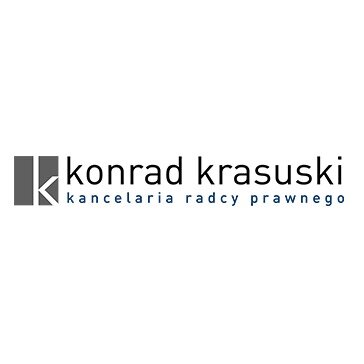Best Art & Cultural Property Law Lawyers in Poland
Share your needs with us, get contacted by law firms.
Free. Takes 2 min.
Or refine your search by selecting a city:
List of the best lawyers in Poland
About Art & Cultural Property Law in Poland
Art & Cultural Property Law in Poland encompasses a wide range of legal issues regarding the protection, ownership, sale, and preservation of art and cultural heritage items. This field of law is crucial in preserving Poland's rich historical and cultural heritage. Legal frameworks in this area address matters such as the illegal trade of cultural goods, repatriation of cultural property, intellectual property rights of artists and creators, and more. The legal environment aims to protect valuable cultural artifacts while balancing the rights of private owners, museums, and the public interest.
Why You May Need a Lawyer
There are several scenarios where individuals and organizations may need legal assistance in Art & Cultural Property Law in Poland:
- Purchasing or selling artwork and ensuring proper provenance or title is clear.
- Dealing with inheritance issues involving artworks or cultural artifacts.
- Protecting and managing intellectual property rights associated with a work of art.
- Recovering stolen or illegally exported cultural property.
- Resolving disputes over ownership or authenticity of art pieces.
- Complying with local and international laws on cultural heritage protection.
- Negotiating and drafting agreements for the exhibition of artworks.
Local Laws Overview
In Poland, the primary legislative acts concerning Art & Cultural Property Law include the Act on the Protection of Monuments and the Guardianship of Monuments, the Museum Act, and the Copyright and Related Rights Act. Key aspects include:
- Protection of Cultural Heritage: Strong regulations and governmental oversight to safeguard monuments and artifacts.
- Import/Export Controls: Strict laws govern the movement of cultural property across borders to prevent illegal trade.
- Cultural Property Restitution: Mechanisms for the restitution of cultural goods unlawfully removed during historical conflicts or theft.
- Intellectual Property Rights: Protection of artists' rights regarding their creations, including resale rights and moral rights.
Frequently Asked Questions
What is considered cultural property in Poland?
Cultural property includes objects of artistic, historic, scientific, or cultural significance. This may encompass antiques, artworks, manuscripts, and heritage buildings.
How does Poland regulate the trade of arts and antiques?
The trade of arts and antiques is regulated by laws that require proper documentation of provenance and permits for import and export. This helps ensure legality and authenticity.
What should I do if I inherit art or cultural items?
If you inherit art or cultural items, consult with a lawyer to ensure you handle transfer of ownership duties and comply with any applicable legal requirements, such as taxes or documentation.
Can cultural property be seized in Poland?
Yes, cultural property can be seized if it is unlawfully obtained or exported. Authorities have the power to act in the interest of protecting cultural heritage.
What are the penalties for illegal export of cultural goods?
Penalties can include fines, imprisonment, and confiscation of illegally exported items. It's crucial to follow legal procedures for exporting cultural goods.
How can I authenticate an artwork?
Authentication can involve provenance research, expert appraisal, and scientific methods. Legal services can assist in ensuring the accurate authenticity of artworks.
What do I do if my artwork is damaged while on loan?
Review any loan agreements and insurance policies. Legal action may be taken against the responsible parties, and it's wise to consult a lawyer specializing in art law.
Who manages cultural heritage sites in Poland?
Cultural heritage sites are primarily managed by governmental bodies, such as the Ministry of Culture and National Heritage, with compliance to legal conservation standards.
Can I protect my artwork internationally?
Yes, international protections are available. Legal frameworks like the Berne Convention provide international copyright protection for artists.
How is copyright infringement addressed in Poland?
Copyright infringement is addressed through civil and criminal actions, with potential remedies including damages and injunctions against infringing parties.
Additional Resources
For further assistance in Art & Cultural Property Law in Poland, consider the following resources:
- Ministry of Culture and National Heritage: Overseeing cultural heritage and assisting with related legal matters.
- National Heritage Board of Poland: Offers guidance on matters of preservation and national heritage.
- Local Bar Associations: Provides access to lawyers specializing in cultural and art law.
- UNESCO: Addresses international legal frameworks for the protection of cultural properties.
Next Steps
If you require legal assistance in the field of Art & Cultural Property Law, follow these steps:
- Identify and document your specific legal needs or issues regarding art or cultural property.
- Consult with an attorney who specializes in art and cultural property law for personalized advice.
- Prepare all relevant documentation, including provenance records, purchase agreements, and any correspondence.
- Consider consulting additional experts, such as art appraisers, for a holistic approach to your situation.
Engaging with a legal profession early on can help safeguard your rights and interests in this complex field.
Lawzana helps you find the best lawyers and law firms in Poland through a curated and pre-screened list of qualified legal professionals. Our platform offers rankings and detailed profiles of attorneys and law firms, allowing you to compare based on practice areas, including Art & Cultural Property Law, experience, and client feedback.
Each profile includes a description of the firm's areas of practice, client reviews, team members and partners, year of establishment, spoken languages, office locations, contact information, social media presence, and any published articles or resources. Most firms on our platform speak English and are experienced in both local and international legal matters.
Get a quote from top-rated law firms in Poland — quickly, securely, and without unnecessary hassle.
Disclaimer:
The information provided on this page is for general informational purposes only and does not constitute legal advice. While we strive to ensure the accuracy and relevance of the content, legal information may change over time, and interpretations of the law can vary. You should always consult with a qualified legal professional for advice specific to your situation.
We disclaim all liability for actions taken or not taken based on the content of this page. If you believe any information is incorrect or outdated, please contact us, and we will review and update it where appropriate.
Browse art & cultural property law law firms by city in Poland
Refine your search by selecting a city.
















